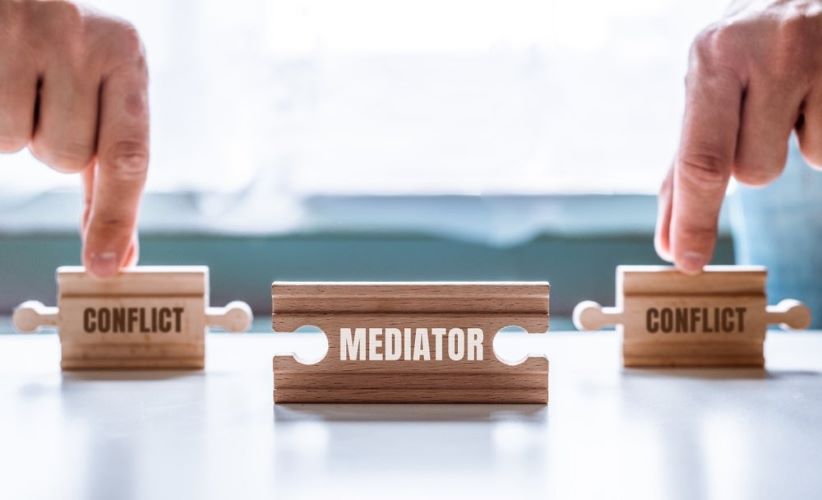The Role of a True Peace Mediator

By Dr. Hassan Humeida
KIEL, GERMANY: In times of war or armed conflict, heightened emotions and deep-seated mistrust often prevent the involved parties from pursuing de-escalation independently. In such circumstances, mediation becomes essential to prevent fatal miscalculations and avert further humanitarian, economic, social and political disasters.
Peace mediation offers a constructive pathway to resolving conflict through dialogue rather than confrontation. A neutral mediator plays a crucial role in facilitating communication, helping parties understand each other’s perspectives, and guiding them toward mutually acceptable solutions. The aim is to rebuild trust, clarify misunderstandings, and achieve sustainable agreements that address the core concerns of all sides.
Mediation can reduce tensions, leading to more stable and peaceful coexistence in the long run. It is a method based on communication, understanding, and a willingness to compromise – in the spirit that wars and conflicts leave no winners for anyone, but only loss and destruction.
A true mediator should possess at least the following qualities:
Neutrality: A mediator remains impartial and does not show any bias towards one side.
Good communication skills: A mediator listens actively, asks clear questions, and can explain complex issues clearly.
Empathy: Empathy helps to understand the feelings and perspectives of all parties involved.
Patience: Conflicts cannot always be resolved immediately, so patience is very important.
Confidentiality: Everything discussed in the mediation process remains confidential.
Problem-solving orientation: A mediator seeks constructive solutions that are acceptable to everyone.
Flexibility: A mediator adapts his / her methods to the specific situation.
Trustworthiness: The parties involved should be able to rely on the mediator.
In addition to the above-mentioned qualities, there are things that a genuine mediator should avoid to ensure the success of the initiative. They include:
Exerting pressure: A mediator must not force any party to a particular solution. He / She only assists in finding common solutions, but the decision lies with the parties.
Acting unethically: A mediator must not use manipulation, fraud, or other unethical methods.
Escalating conflicts: A mediator’s job is to de-escalate conflicts, not exacerbate or prolong them.
Providing legal advice: A mediator is not a lawyer and may not provide legal advice or decisions, but only assist with communication. In short, a mediator for peace must always be neutral, trustworthy, and respectful to facilitate a fair and constructive solution.
Amidst today’s wars and conflicts, the answer to whether the involved parties and the global community are ready for mediation for peace depends on various factors.
In many cases, mediation is already being used successfully to resolve conflicts between states, groups, or communities. International organizations, such as the United Nations, rely on diplomatic negotiations and mediation to de-escalate conflicts and find lasting solutions.
However, there are also challenges: Some conflicts are very complex, deeply rooted, or characterized by strong interests, which can make mediation difficult. Furthermore, it often requires the willingness of all parties involved to engage in a mediation process. Overall, it can be said that the international community is already mature in many areas to use mediation for peace, but there is still room for improvement. More dialogue, trust, and the willingness to resolve conflicts together are important steps in this direction.
Peace does not need mediators who pursue their own interests or who are hesitant, and hypocritically hide behind the role of mediator. They often miserably fail to acknowledge and address the parties’ emotions or to understand their driving force.
E-Mail: hassan_humeida@yahoo.de




